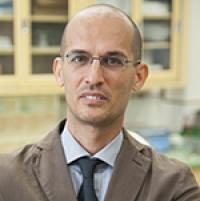
It’s always heartening to stumble upon so-called “aging experts” who actually know what they’re talking about. And it’s even more exciting when they’re willing to call out other members of the profession for their cluelessness when dealing with the chronic diseases that beset most of the geezer population.
Luigi Fontana on Aging
I’m talking about Luigi Fontana, MD, PhD, and his colleagues, who recently published a commentary in the journal Nature taking the healthcare industry to task for its piecemeal approach to treating those maladies that most commonly affect folks my age — heart failure, diabetes, arthritis, cancer, and Alzheimer’s. “Biomedicine takes on conditions one at a time — Alzheimer’s disease, say, or heart failure. Rather, it should learn to stall incremental cellular damage and changes that eventually yield several infirmities,” writes Fontana, professor of medicine and nutrition at Washington University and Brescia University in Italy.
Fontana and his crew, including researchers from the University of Southern California, suggest that the current Big Pharma treatment approach, which tends to go after the symptoms of disease rather than its sources, has only become the dominant paradigm because it’s the most profitable. Research dollars simply don’t go looking for approaches that promote good health when there’s so much dough to be made selling drugs. With 70 percentage of Americans over 65 suffering from at least two chronic diseases, that’s a big market.
“Economic incentives in both biomedical research and health care reward treating diseases more than promoting health,” he writes. “The launch of a few anti-aging biotech companies such as Calico, created last year by Google, is promising. But public money must be invested in extending healthy lifespan by slowing ageing. Otherwise we will founder in a demographic crisis of increased disability and escalating health-care costs.”
Fontana’s research suggests that those numbers could be dramatically reduced — along with healthcare costs — by focusing more on prevention through behavioral changes, such as diet and exercise. “Heart failure doesn’t happen all at once,” he said in a statement released by Washington University. “It takes 30 or 40 years of an unhealthy lifestyle and activation of aging-related pathways from metabolic abnormalities such as high blood pressure, high cholesterol, and type 2 diabetes to give a person heart failure in his 60s, so we propose using lifestyle interventions — such as a personalized diet and exercise program — to down-regulate aging pathways so the patient avoids heart failure in the first place.”
It’s an approach that has worked in the laboratory, Fontana says, and one that “functional medicine” activists like Mark Hyman, MD, have been practicing with notable success for several years. It’s just not often that “conventional” researchers come to that conclusion. That said, Fontana hasn’t completely abandoned Big Pharma, as he suggests that a couple of drugs (rapamycin, an anti-cancer and organ-rejection drug, and metformin, used to treat type 2 diabetes) have been shown to be useful in lab tests to increase longevity in mice.
Still, the big takeaway for me is that some folks out there in academia, at least, are beginning to figure out what a lot of us figured out a long time ago: The simple path to a long, healthy life is all about diet and exercise. Here’s hoping that the healthcare industry catches on at some point.
This Post Has 0 Comments